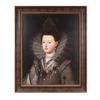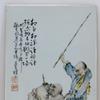A NEEDLEWORK DOYENNE'S LEGACY RECONSIDERED
- October 03, 2010 11:30
HARTFORD, CT. – Some scholars cast a shadow so deep that decades pass before newcomers dare examine a subject in a new light. Betty Ring is one such giant. Beginning in 1967 and culminating in 1993 with Girlhood Embroidery: American Samplers and Pictorial Needlework, 1650-1850, the doyenne of needlework studies defined the field’s scholarly and commercial parameters by classifying the best early American embroidery by school and instructor.
Enter Susan P. Schoelwer. In 2005, she began her exhaustive analysis of antique needlework in the collection of the Connecticut Historical Society. Schoelwer soon concluded that much of merit fell outside of Ring’s major scope of interest, either because it was made prior to the rise of formal female academies after the Revolution or because some girls learned to stitch at the feet of their female relatives, not in schools.
Now curator at Mount Vernon, Schoelwer’s genealogical sleuthing and her often intuitive investigation of family traditions has culminated in Connecticut Needlework: Women, Art, and Family, 1740-1840, published this month by Wesleyan University Press. A companion exhibition at the Connecticut Historical Society in Hartford through March 26 displays more than 70 examples of decorative needlework by girls as young as six years old.
CHS’s final gallery is devoted to needlework by the Punderson family of eastern Connecticut. A collection icon, Prudence Punderson Rossiter’s sobering cradle-to-grave self-portrait, “The First, Second, and Last Scene of Mortality,” stitched in silk around 1780, hangs alongside her 12 needlework portraits of the Apostles, newly conserved and exhibited together for the first time.
With her abiding interest in women’s history, Schoelwer leads beyond mere artistic appreciation to a more nuanced understanding of needlework as a visual marker for the educational and social advancements of the 19th century.
Valley Girls
Forty-two miles south in Old Lyme, Ct., needlework authorities Stephen and Carol Huber have organized “With Needle and Brush: Schoolgirl Embroidery from The Connecticut River Valley,” on view at the Florence Griswold Museum through January 30. Protégés of Betty Ring, the Hubers take a more traditional view, creating a lushly beautiful primer on regional styles, motifs and techniques that anyone interested in fine craftsmanship would do well to study. The curators spotlight the leading female academies of the early Federal era, training grounds for the future wives of Connecticut River gentry. Most of the 60 embroideries, watercolors and sketches are from private collections and many are displayed publically for the first time. An exhibition catalogue is planned, also from Wesleyan University Press.
Boston Colonial
Not to be overlooked, the Museum of Fine Arts, Boston, is offering visitors a privileged glimpse of its holdings of colonial Boston embroidery, rarely on view because of their sensitivity to light. The rotating exhibit opens November 20 as part of the much heralded debut of the MFA’s new Art of the Americas Wing. Samplers, schoolgirl embroideries and domestic embroideries will be shown consecutively through May 27, 2012.




100x100_n.jpg)
100x100_c.jpg)
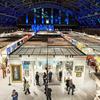
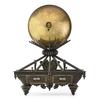



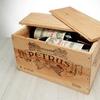

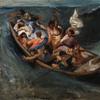
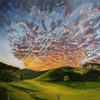

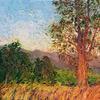
100x100_c.jpg)
